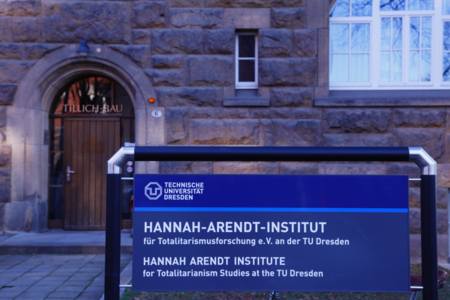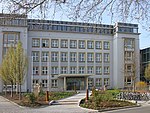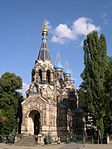Hannah Arendt Institute for Totalitarianism Studies

The Hannah Arendt Institute for Totalitarianism Studies (German: Hannah-Arendt-Institut für Totalitarismusforschung, abbreviated HAIT) is a research institute hosted by Dresden University of Technology and devoted to the comparative analysis of dictatorships. The institute focusses particularly on the structures of Nazism and Communism as well as on the presuppositions and consequences of the two ideological dictatorships. The institute is named after the German-American philosopher and political scientist Hannah Arendt, whose magnum opus The Origins of Totalitarianism (1951) is considered across disciplines as one of the most influential works of the 20th century and continues to shape in particular scholarly discussions of totalitarian systems of political domination.The initiative for establishing the HAIT originated in the nearly 60-year, double dictatorship experience of Eastern Germany and in the Enlightenment-driven Peaceful Revolution of 1989/90, and goes back to former civil rights activists who, as members of the Saxon State Parliament, brought about an Act of Parliament setting up the Institute in November 1991. The Institute began operation on June 17, 1993 under the direction of the historian of Eastern Europe Alexander Fischer.
Excerpt from the Wikipedia article Hannah Arendt Institute for Totalitarianism Studies (License: CC BY-SA 3.0, Authors, Images).Hannah Arendt Institute for Totalitarianism Studies
George-Bähr-Straße, Dresden Südvorstadt (Plauen)
Geographical coordinates (GPS) Address Nearby Places Show on map
Geographical coordinates (GPS)
| Latitude | Longitude |
|---|---|
| N 51.02955 ° | E 13.7243 ° |
Address
Tillich-Bau
George-Bähr-Straße
01069 Dresden, Südvorstadt (Plauen)
Saxony, Germany
Open on Google Maps








